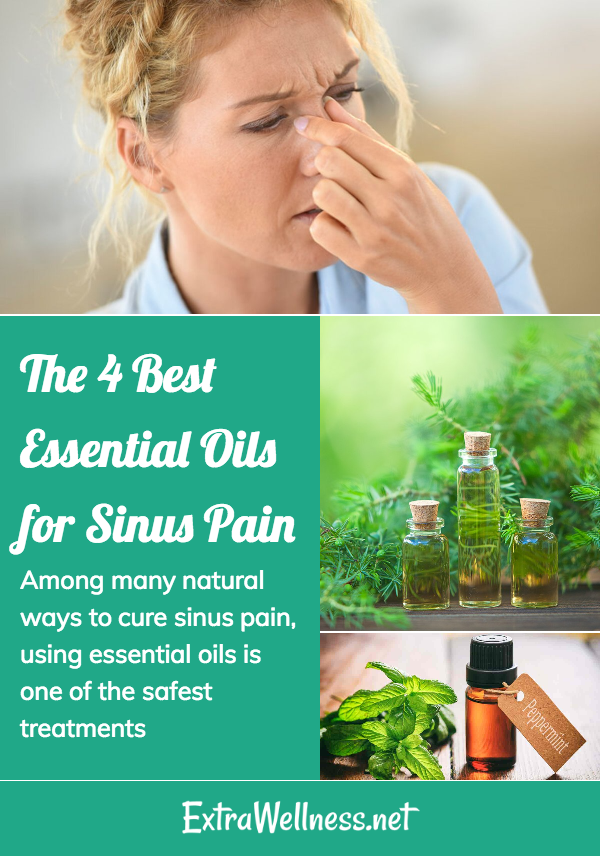Do you feel your head throbbing? Maybe you feel some pressure around your cheeks, forehead, and eyes. Are you struggling with an irritating throat, hoarse voice, and inflamed sinuses?
If you relate to any of these, you could have Sinus Pain.
Understanding Sinuses
Sinuses are four pairs of air-filled hollow pockets found inside each cheekbone. Each sinus opens into the nose and ensures that air coming through the nose is good enough to be transferred to our lungs. Also, sinus produces mucus that drains through the nose.
The inflamed nose blocks the sinuses and causes nose congestion, which results in sinus pain. It may also result in post-nasal drip, facial pain, headache, or a toothache.
Sinus can be chronic or acute
Acute sinusitis lasts for two to four weeks. It’s a part of cold or other respiratory issues.
On the other hand, chronic sinus lasts for more than 12 weeks or may continue to recur. Generally, sinus pain symptoms are same in both chronic and acute forms.
Using Essential Oils for Sinus Pain
Among many natural ways to cure sinus pain, using essential oils is one of the safest treatments for this bothersome condition. There is a long list of essential oils that help with sinusitis, and here are the most effective ones explained below.
Tea Tree Essential Oil (Melaleuca Alternifolia)
Antimicrobial properties of Terphinen-4-ol, a major component of tea tree oil, deal with sinus invaders. It has excellent antifungal, antibacterial and antiviral properties that combat virus and bacteria casing repository or sinus infections.
The oil’s anti-inflammatory properties reduce swelling, inflammation, and pain associated with sinuses. It also calms down sinus pressure, nasal congestion, headache and other sinusitis symptoms.
How to use: Steam inhalation, and forehead and neck massage should help.
Eucalyptus Essential Oil (Eucalyptus Globules)
Mostly grown in the Southeast Asian subcontinent, Eucalyptus trees feature ingredients, which have therapeutic benefits for human body. Eucalyptus essential oil is extracted from the leaves of this tree and is a potent chemical concoction.
The oil is extremely effective for relieving nasal congestion and sinus inflammation. It’s a tested and proven formula for nasal infection treatment and is used all over around the world. It contains unmatched anti-inflammatory properties and disinfectant that make it help sinus issues.
Since eucalyptus oil is a strong compound, care must be taken while using it for treating bodily maladies. Keep it away from dermal areas, as doing this will give you a burning sensation.
How to use: Steam inhalation is the safest way to use eucalyptus essential oil for sinus pain treatment.
Thyme Essential Oil (Thymus Vulgaris)
Thyme herb belongs to the family of mint and contains compounds that possess healing power to combat sinus inflammation. One of its many effective compounds is Carvacol, which acts like over-the-counter medicines to treat sinus pain. It acts as soon as you use it and reduces enzymes that cause inflammation.
It is known as an expectorant that opens the congested nasal passage. Its invigorating aroma awakes senses and eases congestion. Moreover, it provides relief from a headache and offers mood-boosting effect.
How to use: Put 2-3 drops in your palm, rub together and enjoy the vapor. You can also add thyme oil into hot water to inhale relieving steam.
Peppermint Essential Oil (Mentha × Piperita)
Peppermint oil contains a natural compound known as L-menthol. This is the compound that makes peppermint oil best for many medicinal purposes. Its powerful cooling effect relieves pain and moderates inflammation.
Peppermint oil has natural antimicrobial properties that kill sinusitis-causing bacteria. It acts as a natural anti-inflammatory and antihistamine that breaks up mucus and calms down irritation while providing easy breathing. Its calming and soothing properties help treat a sinus headache.
How to use: message temples, jaw and the back of your neck for instant relief. You can also take a deep steam inhalation to cure sinus pain.
Words of Caution: Don’t use essential oils if you’re allergic to any of their ingredients. In case of a serious medical condition or pregnancy, consult with your physician first.



